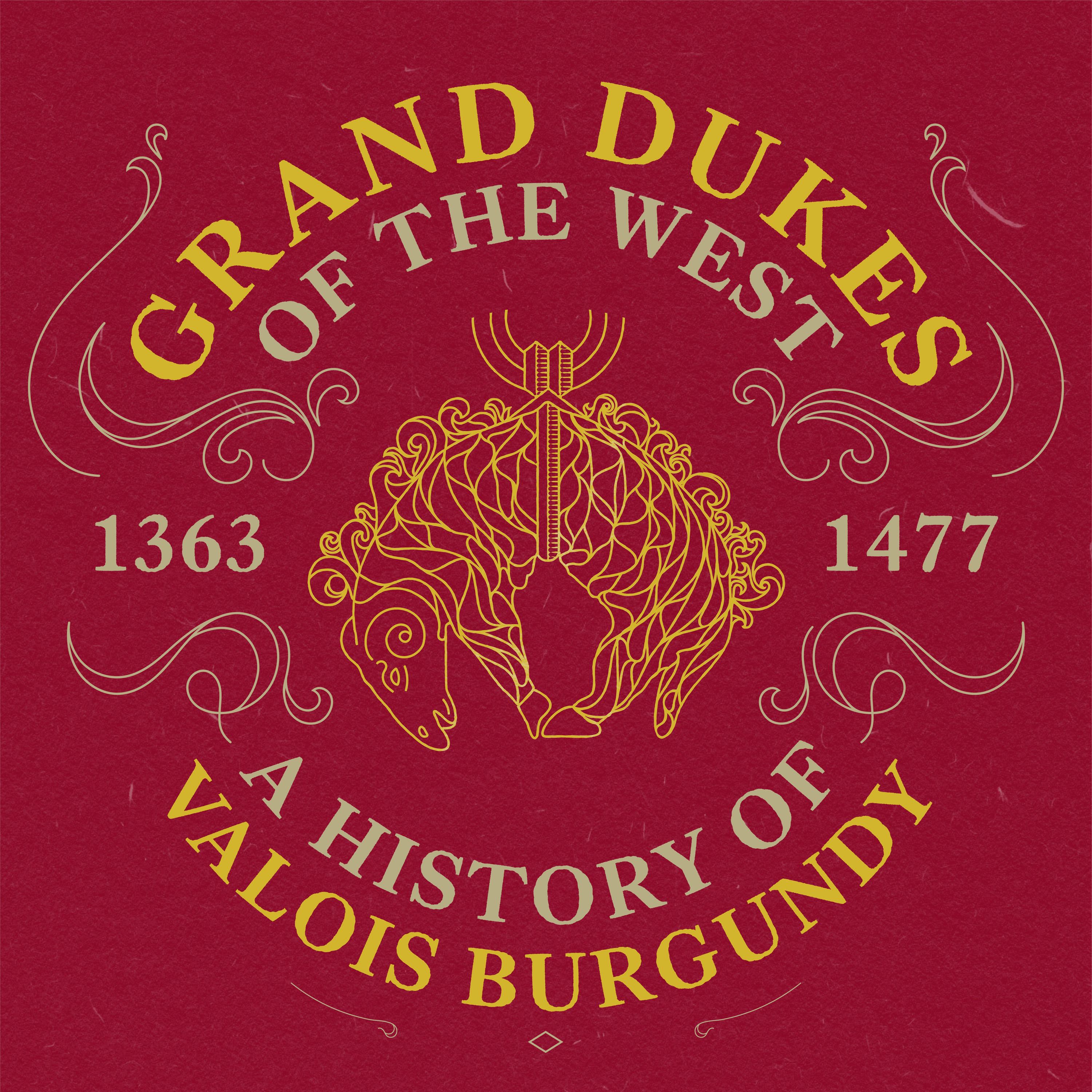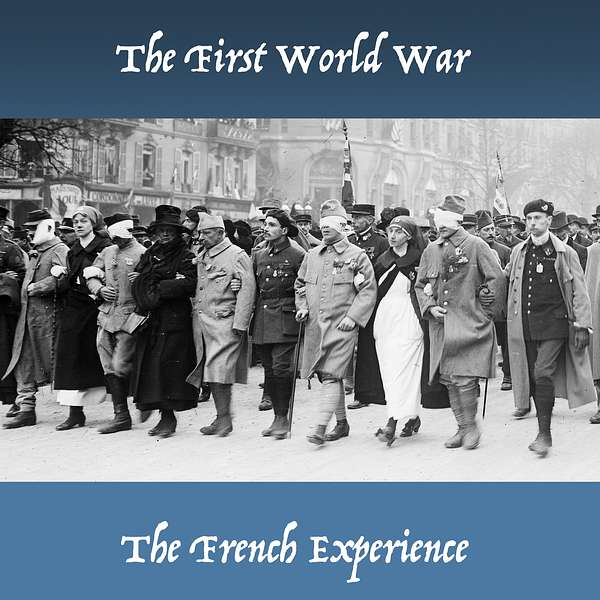
La Fayette, We Are Here!
La Fayette, We Are Here!
The First World War. The French Experience
For France, the Great War is a serious and deep wound that she partially inflicted on herself. It is painful and has never fully healed. It is something personal, felt by all strata of the nation. From the humblest peasant to the richest industrialist, no layer of French society was spared in the great slaughter that the trenches were. The country itself still bears the scars of battles dating back nearly 110 years. Every city and village in France has a monument to the dead of the First World War, often with a staggering number of fallen soldiers considering the local population. And that's not counting the wounded, the mutilated, the traumatized.
We are not going to go through dates and battles. We are not going to summarize four years of destructive conflict by analyzing every move and strategic decision. Others have done it many times, surely better than me. No, we will focus on the experience of the country of France during those dreadful years from 1914 to 1918.
Timecodes:
Introduction
05:18 - On The War Path
13:22 - The Poilus
26:51 - France at War
42:18 - Life after 1918
48:11 - Conclusion
Music: Marche pour la cérémonie des Turcs, composed by Jean-Baptiste Lully, arranged and performed by Jérôme Arfouche.
Artwork: Fête de L’Alsace-Lorraine le 17 novembre 1918. Les blessés défilent avenue des Champs-Elysées, Paris. Agence Rol, Public Domain (Gallica)
Recommended link: Blueprint for Armageddon, Hardcore History podcast by Dan Carlin
Reach out, support the show and give me feedback!
"The last of the last", that's how they called the Great War, the First World War. It was so terrible for France and the French that it seemed inconceivable that there could be another war after that. An entire generation of soldiers had gone to the front in 1914. These young people lived in the spirit of revenge for the defeat of 1871 and in the militarism common to European societies at the turn of the century. But by 1918, the situation had changed. It had transformed, even. The mere idea of a new conflict made even the bravest soldier turn pale; War itself was over with as an idea, or so they hoped.
For France, the Great War is a serious and deep wound that she partially inflicted on herself. It is painful and has never fully healed. It is something personal, felt by all strata of the nation. From the humblest peasant to the richest industrialist, no layer of French society was spared in the great slaughter that the trenches were. The country itself still bears the scars of battles dating back nearly 110 years. Every city and village in France has a monument to the dead of the First World War, often with a staggering number of fallen soldiers considering the local population. And that's not counting the wounded, the mutilated, the traumatized.
Dear friends, today, we are not going to go through dates and battles. We are not going to summarize four years of destructive conflict by analyzing every move and strategic decision. Others have done it many times, surely better than me. No, we will focus on the experience of the country of France during those dreadful years from 1914 to 1918. Without further ado, here is "The Great War, the French experience!"
Welcome to “La Fayette, we are here!”, the French history podcast, by a Frenchman! I am your host, Emmanuel Dubois, and today we are talking about the First World War in France. As I have just stated, I won't do a deep analysis of the military aspects of the war, we will focus more on the human side of things. Here's how I'd like to go about it. First, I will do an overview of the war itself, how it started, and how it run its course until November 1918. I will be focusing on the Western front and will go quickly about it. I just want to give you proper context for the next part of this episode.
In the second part, we will examine what it was like for French soldiers in the field, their day-to-day routine, assaults, surviving German attacks, etc. The poilu, the French soldier of the great war, is still recognized as an iconic warrior figure, one that endured hell for years. I'll do my best to tell you about their plight.
Then we’ll talk about life in France during the war. How it was for the French citizens who were supporting the war effort or had their loved ones in a trench somewhere. There’s also the refugees, the displaced or the French citizens who lived under German occupation in the North. Their story is also fascinating and relevant, and sadly often forgotten.
Finally we will talk of life after the war. What was the deep impact of it for the generation that actually went through it. I talked about France still bearing the scars of that conflict. I want you to understand why, and how deep these scars run.
I should also say that this episode will have some personal elements in it. My great-grandfathers fought in the war, all of them! And by some miracle, they all came back in one piece, physically at least. My partner's ancestors were living in the North and experienced occupation or evacuation. Some also fought in the war. You'd be really, really had pressed not to find a French family who has some stories from the Great War. Now, without further ado, let's get started with our overview of the conflict.
On The War Path
I know I said that we weren't going to go through dates and battles, but I have to do it very quickly. I won't mentioned all the battles of course, but I will tell you about the major phases of the War on the Western front, so that you have a clear idea of what went on. If you want to get a detailed account of the war itself, I recommend that you listen to Dan Carlin's great series Blueprint for Armageddon from his Hardcore history podcast. It's truly a great ressource. On my part, I'll have to grossly oversimplify an extremely complex situation to get my point across, so please forgive me.
By Summer 1914, basically all of Europe is on the war path. Alliances are opposed, ethnic groups are pressured, especially in the Balkans, countries have been arming over the last decades like never before, including France. As you may recall, France had been defeated and humiliated by Prussia in 1870. Since then, she's been preparing for a rematch against the German Reich, proclaimed in Versailles in January 1871. France had also lost Alsace-Moselle to her enemy after that war, so the French really were eager to fight. Since 1904, France was enjoying the fruits of the Entente Cordiale, an understanding with her longtime foe, Britain. Both countries were now on the same side. On top of that, Russia was now another ally of France. The French therefore had reasons to be confident. They had rebuilt a very strong army, had allies and support in Europe.
The Germans also had advantages. The German Reich was way more populous than France, about 65 million Germans versus 40 million French, it had the strongest heavy industry in Europe, an extremely well trained and drilled army, a strong militaristic culture and also allies. The biggest ally was by far the Austro-Hungarian empire, this conglomerate of countries and ethnic groups ruled from Vienna. It will prove and unreliable ally during the war though, as well as the most direct cause of the war itself. Although, I do believe that if the events of 1914 hadn't triggered a major conflict, something else would have. All the major countries in Europe knew a war was coming, they just thought it would be coming around 1917 or 1918 rather than 1914. As the saying goes, "If the only tool you have is a hammer, it is tempting to treat everything as if it were a nail." Well if the only tool you have is a big army, it is tempting to treat everyone as if they were enemies.
Now that we roughly know the cards, let me summaries very quickly how they were played. In June 1914, the Archduke Franz Ferdinand, heir presumptive to the Austro-Hungarian throne, is assassinated in Sarajevo by Gavrilo Princip, a Bosnian Serb student. In the following weeks, the outraged Austro-Hungarians declare war on Serbia, igniting the European power keg. The Russians, defenders of the Serbs, start mobilizing their army. The Germans declare war on Russia on August 1st and on their French allies on August 3rd. You see, the Germans had a problem. Fighting France and Russia at the same time looks like a bad idea to anyone who can read a map, as it forces them to send troops on both sides of their empire, halving their military capability. The Germans think they have an answer to that conundrum. They plan to invade France through Belgium, to crush the French army like in 1870, then to turn around and face the much slower to mobilize Russia and to defeat them. They believed their army was vastly superior to their enemies, they believed the British would not protect Belgian neutrality, they believed the Russians would take six to eight weeks to mobilize. They were wrong, on all accounts.
Let me talk about about the initial part of the war of 1914, as it will set up the stage for the remainder of the conflict. In the first days of August, the German army invades Belgium and heads towards northern France. The idea is to surprise the French who were expecting the Germans in Lorraine. It partly works, as the French are indeed surprised and have to change their defensive plans. During the first couple weeks, it seems like the German plan might succeed. The Belgians, although heroic, cannot really slow down the overwhelming German troops, and the hastily sent British Expeditionary Corps barely has time to land in France before being sent to the front. The Germans push the Allies back every day and were heading for Paris. But this time, the French had deeper reserves than in 1870 and more support. They knew their British and Russian allies would help them, and this gave them confidence. Plus, their army was very well drilled, avoiding routs.
In the first week of September, the Allies outmanoeuvre the Germans, preventing the encirclement of their armies, and they counterattack at the Battle of the Marne. The French famously used Parisian taxis to send troops and supplies quickly to the front line. Despite their efforts, the Germans had to retreat. General Joffre, the French commander, had had the courage of basically throwing away his initial planning to react effectively to the situation at hand. The German commanders didn't, they stuck to their plan, called the Schlieffen plan, until it was too late. In the following weeks, the Allies pushed the Germans back and back until they reach the Aisne river. The front stabilized along the river, then directly north to the North Sea. The Germany army occupied most of Belgium and part of Northern France, notably the Départements of Nord, Ardennes, Aisne and parts of the Pas-de-Calais, Somme, Marne, Meuse, Meurthe-et-Moselle and Vosges.
The warriors on both sides dug in trenches to protect their positions. The Germans managed to block a powerful Russian offensive at Tannenberg in late August 1914 and the front stabilized there too. Soldiers took their positions, separated by only hundred meters of no man's land. They all thought it would be a short war, over by Christmas. The French, the Germans, the Russians, everyone believed that. They all thought they could deliver to fatal blow to their ennemies quickly and efficiently. But no, they were headed for years of mud, misery and death.
The Poilus
Once the Front was stable, life changed for the French soldiers. Instead of marching and campaigning like they were expected to do, they hid in trenches. Their daily routine consisted of waiting for the next German offensive or of being called to lead an assault on German lines. Lots of these offensives were basically suicide runs. Walking straight into artillery and machine gun fire is not exactly a healthy thing if you get my meaning. Plus, the astonishing power of First world war artillery meant that the landscape quickly became deprived of any feature. The trees were torn apart, they completely disappeared, the variation in terrain were obliterated by the continuous firing, and anything solid like houses or farms was destroyed. Basically a lunar landscape, but situated in what used to be a lovely part of France.
When they were first sent to war, the French soldiers looked like nineteenth century gentlemen ready for a parade. Wearing soft hats and flashy read trousers, they were very elegant, but ill suited for modern warfare. The French Cuirassier, the heavy cavalry, looked like they belonged to the Napoleonic era with they breastplates and plumed helmets. The Germans also had archaic uniforms better suited for chic diner parties in Frankfurt than life in the trenches. Both armies quickly made adjustments.
The French had sustain very heavy casualties during the German initial attack. These losses were not sustainable in the long run. Two changes were made in 1914-1915. First, the idea of attacking in massed formation, inherited from the nineteenth century, was abandoned. Secondly, the French needed uniforms that didn't make them look like bright red targets. The new colour had been chosen in 1914, a grey-blue known as "horizon blue" or "bleu azur" in French, designed to make the soldiers less visible against the horizon. They were also issued steel helmets, the Adrian Helmet. It proved very efficient against shrapnel and debris. So by mid or late 1915, the French soldiers at least had decent equipment.
However, trench warfare proved to be one of the most horrible things ever invented. Imagine sitting in a muddy bowl, with barely enough to eat and drink. With rats, lice and other vermin all over the place. Exposed to all kind of weather, in a part of the country that experiences very heavy rains in Spring and Autumn and freezing temperature in Winter. Just being out there would exhaust most of us. But on top of that, you'd have the occasional artillery barrage that could wreak havoc in your positions and kill you at any instant. If you were to pop your head a centimetre too high above the parapet, an enemy sniper was likely to kill you. Finally, at any moment, your superior officer could call you to get ready for an assault during which you know you were likely to die or be maimed.
Death, suffering, boredom, all in a nonsensical war that seemed completely blocked from late 1914 until the offensives of 1918. Over three years dug in trenches, spending weeks at at time in the same hole. Sometimes, your regiment would be send over to another part of the front and you'd walk long distances carrying heavy loads until you were told to stop. Every now and then, you'd be send back to civilian life on permission. To breath and relax. But life back home was by now alien to you. Many soldiers had tremendous difficulty readjusting to quote and quote "normal life". For some, it proved impossible, even after the war was over.
These soldiers, wearing their horizon blue uniforms and Adrian helmets are know to history as the Poilus, the hairy ones literally. This appellation was meant to show the masculinity and virility of the soldiers. Even though it was used before and after the war, it became synonymous with the French soldiers of the First World War. The last of them, Lazare Ponticelli, an Italian emigrant, died in March 2008, aged 110. Shortly before his death he said in an interview quote: "Cette guerre, on ne savait pas pourquoi on la faisait. On se battait contre des gens comme nous...", or in English: "This war, we didn't know why we were doing it. We were fighting against people like us..." End quote.
It is acknowledged by many historians that the soldiers of the First world war endured probably the most horrific and prolonged war conditions ever. It was horrible all over the front, but some battles were worst than others. Let me talk to you about one of them: Verdun. It exemplifies the Western front perfectly as well as the absurdity of the war as a whole. I'd dare say, it demonstrates the stupidity of war as a concept, but alas that lesson was never learned.
After a totally inefficient 1915, the Germans wanted to force the French to submit. The French and British had tried and failed to push the Germans back, but the stable front was exhausting German ressources and nobody was moving. General von Falkenhayn, commander of the German army, devised a plan designed to, quote, "bleed the French Army white", end quote. The basic idea is simple: attack a French stronghold, one that the French will never want to surrender, and force them to counter attack again and again until they have so much casualties that they'll sue for peace. In recent years, historians have contested this explanation, stating that von Falkenhayn actually wanted to seize the stronghold for its strategic value. Whatever the case may be, the end result was the same. Violence on a then unseen level was about to unravel around Verdun, in Lorraine.
On February 21st 1916, the Germans open their artillery barrage, the heaviest ever unleashed at this point in time. In the first two days of the battle, over two million shells fall on the French positions. That's an average of one every 3 seconds. A heavily concentrated rain of steel and fire, annihilating French defences and soldiers. Entire forests are wiped of the map in a matter of minutes. Following the massive artillery barrage, the German troops advance, certain that the French are dead or too scattered to oppose any serious resistance. Again, they are wrong. The poilus are hardened soldiers, well led by officers who are able to organize an effective defence of the area, using the destroyed terrain as multiple defensive positions. During the following days, the Germans attack relentlessly but are stopped by the few remaining French troops and some reinforcements.
Over the next several months, both sides engage in a horrific and brutal battle, one that will in the end claim 700,000 victims, half of them dead. The French rally under the slogan "On ne passe pas!" or "You shall not pass!" And reorganize their defences. General Philippe Pétain is put in charge of the French army there and organizes the "voie sacrée" or "sacred way", a road that connects the front to the rear, allowing the French army to be resupplied effectively and permitting a rotation system. This system was implemented to make sure soldiers would never be more than three weeks on the front, always being replaced by fresher troops to oppose the Germans. This system also means that most of the French army fought at Verdun at one point or another in 1916.
Soldiers from all over France and the colonies were sent to fight and die at Verdun. Soldiers from every social background would run across no man's land to try and take enemy trenches. Soldiers from Marseille, Bordeaux, Reims, Orléans, but also from Tunis, Dakar or Abidjan. It should be said that the French colonial soldiers endured the same hardship and horrors than their metropolitan counterparts, suffering and dying in muddy trenches thousands of kilometres away from home, fighting for their colonial overlords. These men were poilus too, something that the men on the front acknowledged more than their superiors back in Paris or Versailles, where the French High Command was located.
Along the hundreds of thousand of French soldiers who went to Verdun, let me name four. Jean Chaminade, Henri Dujardin, Cyr Pivois and Adrien Dubois. These men are my great-grandfathers and they all served in the trenches. I am not certain regarding Jean and Henri, but I do know for a fact that Cyr and Adrien fought at Verdun as infantrymen. I feel especially for poor Adrien. His wife had died the previous year of a heart attack while he was at the front. Her name was Blanche. Yes, Tennessee Williams fans, I had a great-grandmother named Blanche Dubois. How cool is that?
On my partner's side of the family, they were even less lucky. One man, Alexandre, took a shrapnel to the jaw. It went through, taking 11 teeth with it and leaving a 6cm scar. He was away from the front for six months, then sent back, and wounded again by shrapnel, this time in the shoulder. A second time, he was sent back to the front after is convalescence. He survived the war. Another man of her family, Édouard, was mobilized and sent to Verdun. On May 22nd 1916, he took part in an operation in the Bois Bouchot and never came back. His body was never found. A third one, Louis, was gassed during the war. He suffered from heavy emphysema and tuberculosis. He died a few years after the war of his afflictions. A fourth, Auguste, was captured by the Germans in 1914, just at the outbreak of the war, and worked in salt mines in Germany until 1918. Finally, a fifth man, Alphonse, took a bullet to the leg at Ypres in 1914. He had his leg shortened and suffered greatly in the following years. He received the Croix de Guerre avec Palmes, a military decoration.
My family originates from the Loire River Valley and from southern France. Those regions were spared by the conflict, at least directly. But my partner comes from the North, from a region that was conquered and occupied by Germany. Let us step away from the men on the front for a moment and discuss all the others, those who suffered away from the trenches. But also those who fought in other ways to help out their country.
France at War
As soon as any hope of a short war had vanished, it was obvious that the entire French society and economy would have to be oriented towards one goal: to win the war. As I have stated, Germany was way more populous and had a stronger industry, but it faced different challenges. Germany had to fight on two fronts, at least until 1917. Plus, from the outbreak of the war, it lost all its importations, as the French and British fleets effectively blockaded all the German ports. France however, had a colonial empire, providing enormous resources, and allies. America provided financial and material support and eventually entered the war in 1917, taking part of the great offensives of 1918. But what did all of this mean for the French citizens living in France or in occupied territories? Let's find out.
Let's begin with the occupied Départements that I mentioned earlier. Once the front settles, over 2.5 million French live under German occupation. The Germans establish a military system to rule over this area. It proves to be very brutal for the French and Belgians living under their rule. I should say that this subject was for a long time almost ignored in France. It was almost a shame to have lived in the occupied territories. French historians and politicians focused on the soldiers at the front and the workers in the rear, on the war effort per se. But little ink was put to paper regarding the populations suffering under the German military occupation. This aspect of the war is most know regarding the Second World War. For the First, it's been largely forgotten, at least until recent years.
French citizens had to serve their German overlords under penalty of imprisonment or death. The privations were many and grew as the war went on. The Germans had barely enough resources to feed and cloth their own people, let alone the French. By 1915, the French were fighting what they called la guerre pour le pain, war for bread. Basically, fighting to have enough bread to eat.
The Germans had every authority, and they took advantage. Every French home was considered fair game. They could send soldiers to live in the house or steal any valuables. Of course, tools, clothes or any other practical thing was quickly seized by the occupiers. But French people were eventually forced to leave their homes, their farms, their businesses, such that their lives were taken away by force of arms. On top of that, the Germans were applying psychological pressure. Forbidding any sign of support for France, having their own military parades of the place de la République of French towns and villages. Rubbing it in as we could say.
There was also resistance from the French. Not as organized and known as the Résistance from the Second World War, but significant nonetheless. In August 1914, the French government had evacuated thousands of people, mostly women and children. But many men or elderly stayed behind. Instead of blowing up bridges or factories, as they didn't have the means to conduct such operations, these résistants did their best to annoy the Germans a little bit every day. Obstructing a road there, stealing uniforms here. Anything they could do. But it was not easy, nor without risk.
The Germans sent thousands of Frenchmen and women to work in German factories to help their own war efforts, often in brutal conditions. For the résistants that I mentioned, the Germans would often execute them, but some were also sent to camps. One of them is particularly infamous, the bagne de Sedan. This was effectively a concentration camp. Established in 1917 in a medieval fort, it was a prototype of the horrors perpetuated by the Nazis a generation later. People sent there were beaten, tortured, experimented on. Between January 1917 and November 1918, about 5000 to 6000 French and Belgians were sent there. 80% of them died there of beatings, malnutrition, illness, or a combination of the three.
Let's be clear, had the French invaded Germany, I do not think they would have treated the German population any better. An occupying army is pretty much a worse case scenario for a civilian population. But the fact of the matter is this. In 1914-1918, the French and Belgians were occupied and suffered under enemy military rule, not the Germans.
To circle back to my family, or my partner's to be more precise, one her ancestors, Eugène, was sent to the bagne de Sedan in 1917 and died there because of the mistreatments he endured. His son, also named Eugène, became a résistant, during the Second World War. As for the women, let's take Eugénie for example, another of her ancestors. She was evacuated from Maubeuge in the Nord to Vatan, in Indre, with her children. But her husband, Édouard, stayed behind. He died in occupied territory in 1917, but his family only learned his death in 1919! There was just no communication between the occupied territories and France.
For the French people living in the rest of France, the common goal was simple: to help their soldiers win the war. Waging war has an enormous cost. In case of total war, it's almost impossible to bear. To give you an idea, the French national budget of 1913 was around 5 billion of franc or. In 1918, it was 54 billion. To pay for all this, France had to borrow money, notably from the United States, but also had to impose more taxes and to ask for the help of citizens. The French State grew like never before and was soon part of everyday life. For many French, especially those living in remote area, the République soon became a very tangible element of their daily lives. An example is the creation of the impôt sur le revenu, or income tax. Yes, we have the First World War to thank for that. Although to be fair, the British had had it for almost a century, albeit to a lower level.
War also meant all hands on deck, including women's. France is, I'm sorry to say, very patriarchal, even today in my view. Women were subdued to men legally, socially and economically. They couldn't vote, they'd have to wait until 1944 for that, and married women were almost belongings of their husbands. They couldn't even open a bank account without their husband's approval for example. Despite all this, women answered the call without question and headed to the factories and everywhere else they could help the war effort. Their contribution proved invaluable.
Take shell production for example. In September 1914, it jumped from 10,000 units per day to 100,000. This required thousands of extra workers in the factories. At the beginning of the war, the women represented less than 10% of the industrial workforce. By 1918, they were over 35%. The minister of the armament, Albert Thomas, worked to improve women's conditions in the factories. In 1914, a woman was paid half a man's salary for the same position. By 1918, it was 75% of the salary. Still far from parity, but a step in the right direction. These French women worked in very hard conditions, often over 12h per day to help France produce a staggering amount of supplies and weapons for the front. Just look at some numbers for the duration of the war: 300 million canon shells, 6.3 billion rifle cartridges, 2.4 million rifles, 17 thousand field guns, 51 thousand planes, and on and on. And I am not even talking about the thousands and thousands of nurses, correspondents, and yes, pilots and other female warriors who fought for their country.
Despite this, when the war was over, the women were quickly sent back home. They lost their jobs before the men and the patriarchal discourse pushing traditional family values quickly worked to erase their efforts and sacrifices. Men in position of power were afraid that these women would become too independent, less docile, not subjugated to their will anymore. One step forwards, two step backwards. A shame, really.
The French population as a whole endured privations and immense stress from 1915 on. I wouldn't say they were starving, but times were indeed though. Plus, most French families had at least one man at the front, often several. Husbands, brothers, sons, cousins, they were all in the danger zone and could die or be maimed at any moment. I can't fathom living like his, imagining my son in a trench somewhere, being in pain, miserable and in fear of death at every instant. And maybe dying, because he was sent charging a trench, or because a shell found him in his muddy hole. Bearing this every day seems, well, unbearable to me. And it was very hard on the French population. In Spring 1917, there were mutinies at the front, with soldiers tired of being sent to their deaths for no good reason, and at the rear, with the moral collapsing. The French government was badly shaken until George Clémenceau, a very tough man nicknamed the Tiger, took over and reacted to prevent a global collapse. In effect the mutinies and strikes were limited, but they were getting worse and they proved that the French people as a whole was struggling to cope with the brutality and length of the war. And honestly, who can blame them? Certainly not us, calmly listening to our favourite podcast sitting in a comfortable chair sipping tea. But I digress.
Under Clémenceau's tough, almost dictatorial, leadership, France fought on. In 1918, the war of movement was reinitiated, thanks to planes, tanks and renewed tactics. The Germans didn't have fight the Russians anymore after the Bolsheviks sued for peace in March. On their side, the French saw thousands and thousands of American Boys cross over the Atlantic to fight with them. The Germans seized the initiative, attacking the Allies with everything they had in the Spring of 1918. They made strides but were halted. Then, the Allies counterattacked, led by the French. The fighting in Summer and fall 1918 was very brutal, very mobile and renewed the hatred between the belligerents. At the end of 1917, the French and the Germans were almost numb, as one would be after being punched in the face for three years. But when the attacks restarted on a massive scale, adrenaline kicked in an the propaganda machine fulled the worst sentiments in the French soldiers and population.
As the French advanced in occupied territories, they liberated regions that had been under German rule since 1914. In their retreat, the Germans forced to remaining civilians to flee their homes and they destroyed everything. Hundred of thousands of French civilians lost everything in those terrible months of mid 1918. The French soldiers who witnessed that, grew even more enraged. In November, a few days before the end of the war, a French soldier writes, and I apologize for the racist vocabulary, quote : "La vengeance sera terrible, la rage a remplacé dans nos cœurs le peu de pardon que nous aurions eu pour les Boches. Nous raserons aussi les villes boches et nous ferons le double de ce que l'ennemi aura fait chez nous. Le Boche est pillard, bandit, assassin, incendiaire, un lâche adversaire et nous le détruirons." Or in English "Vengeance will be terrible; rage has replaced in our hearts the little forgiveness we might have had for the Krauts. We will also raze the German cities, and we will do twice as much as the enemy has done to us. The Kraut is a looter, bandit, assassin, arsonist, a cowardly adversary, and we will destroy him." End quote.
These people had to survive the war, yes. But then, they also had to survive the peace.
Life after 1918
On November 11th, 1918, at 11am, all the fighting stopped. The ceasefire was in effect, following intense negotiations between the Allies and the Germans in a train in the Rethondes forest. The Germans were defeated, the Allies victorious. The French had suffered 1.7 million killed, 300,000 of them civilians. 4,3 million Frenchmen were wounded, half of them incapacitated for life. These numbers are enormous. Over ten percent of the entire French population had been killed or wounded in the war. To put things in perspective, the British suffered just shy of a million deaths, out of 45 millions, the Americans 117,000, the Canadians 67,000. Per capita, France is the country who suffered the most in that war. Germany suffered in the same proportions, with 2.4 million deaths and 4.2 million wounded, out of 64 million inhabitants.
Traumatized is too weak a word to describe how these people felt. Most veterans from the front are known to have one thing in common: silence. Ex-soldiers would very rarely talk about their experience during the war, as if to keep the suffering away. Over 600,000 women were widows because of the war, over a million children became orphans or Pupille de la Nation, "pupil of the nation", meaning that a parent was either killed or incapacitated during their service. As I have stated, nobody was spared. The French president of the time, Paul Doumer, lost four of his five boys during the war. Parents had to mourn their children, children their parents, wives their husbands. Everybody had lost someone, every part of France was wounded by the war, even if it was far away from the front.
The country's reality was also deeply affected. France had had a dramatic demographic slowdown in the nineteenth century, and the terrible casualties added to this problem. France was lacking young men and would continue for over a generation. The economic and social consequences of that would be felt until the outbreak of the next war with Germany. France was hurting, badly. It was bleeding, it was weeping. Hope and energy were very hard to come by immediately after the war.
In the immediate years after 1918, the French government quickly established memorials and services to honour the fallen soldiers. It was extremely important to remember what had happen and to mourn as a nation, to be able to move on. Monuments are built in every French town or village, but also on battle sites. Ceremonies are held regularly. Widows and orphans receive help from their communities and from the State.
On July 14th, 1919, the first Day of the Bastille following the victory, a massive parade is organized on the Champs Élysées, led by three marshals: Pétain, Joffre and Foch. They walk with a thousand maimed or disfigured soldiers, the famous geules cassées,the broken faces. The whole city of Paris watches them, along with two million Frenchmen and women who made the trip from the rest of the country. The French were victorious, yes. They had held their own remarkably well, more so that could be reasonably expected from them, or any people for that matter. But it was a a victory overshadowed by mourning; une victoire endeuillée in French.
Terrible challenges awaited France. Her war economy had to morph into a peacetime economy. Millions of men who had experience absolute horror had to back home, to their jobs and their families, as if nothing had happened. In a time where PTSD was badly understood, an affliction they called "shell shock" at the time, it was a very difficult process for many, many of these ex-soldiers and their loved ones.
Part of the country is devastated. The north was the hearth of French industry. No more. The industries had been destroyed by the war, and the towns by the retreating Germans. The front itself was a lunar landscape. Stretching over 500km, wide of about 25, it was a dead zone. Nothing could be built there for a very long time, and the soil could not be used to cultivate anything anymore. Part of it is still toxic and dangerous to this day, with sections forbidden to the public. Over a century after the war, France still bears the marks of this terrible conflict. And it will, for many more years.
Conclusion
What to make of this depressing tale, my friends? We discussed how the soldiers suffered and died at the front. How the French population in general had to come together to allow their fatherland to survive and fight on. We've even had direct examples with my family and my partner's. Only two families, deeply impacted by the war, like so many others. No French family was entirely spared, everyone lost something between 1914 and 1918. Everyone.
We called this war, la der des der, the last of the last. It was so atrocious, so long, so senseless, that it was supposed to end war itself. Millions had died and for what? Some diplomatic conflict? Some border issue? Some bruised egos? Some revengeful feelings? No cause whatsoever could be worth so much blood. The First World war is The Great War for a reason. It hurt the most its belligerents, and France took the blunt of the shock.
The Western front was mostly in France. The country feared for its very survival for four years. France's population gave everything to achieve victory, just like the population of other countries did. But the memory of 14-18 is more vivid than any other in France. World War Two is more present in many countries, because of its scale and because of the atrocities committed in the name of ideologies. If you were to ask a German or a British "which war matters the most to you?", nine out of ten would answer "World War II". Not the French. For the French, it was World War I. That was the defining conflict, the one that pushed the country to its very limits. The one that was a fight for survival. The one that almost destroyed France.
But the French endured and lived on. Helped by their allies and their colonies, they won the war and lived to see another day. They had left a sizeable part of a generation in the trenches; their blood mixed with the mud of Verdun, Ypres or Sedan. We should never forget, the horrors that we inflict to each other. All human beings. Wether we are French, German, Russian, English, Canadian or American doesn't matter. When we shell other human beings; when we shoot at other human beings; when we pour toxic gas on other human beings; we have failed our humanity. I keep on hoping that we, the human race, will one day learn this, for good.
Thank you for listening, au revoir.
Podcasts we love
Check out these other fine podcasts recommended by us, not an algorithm.
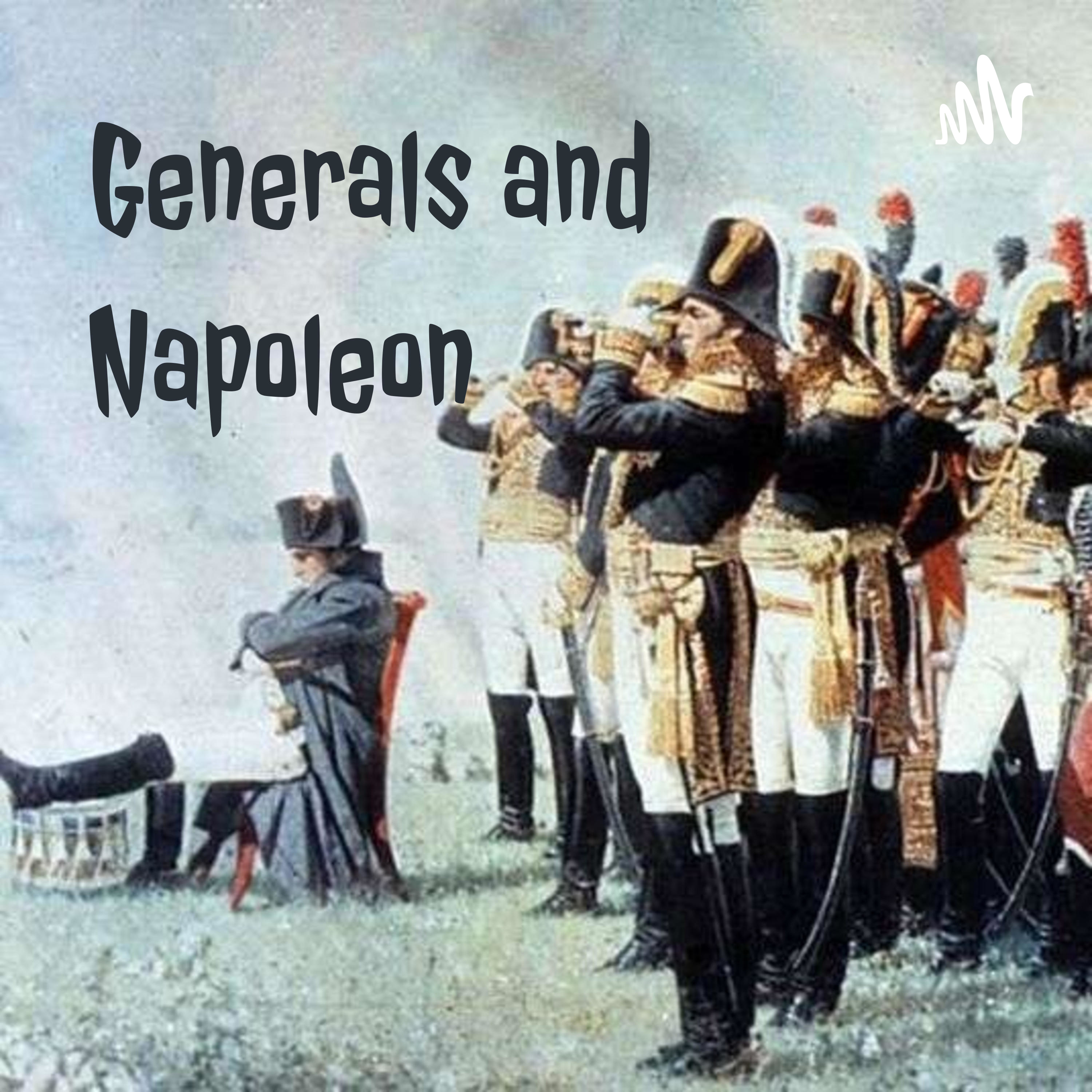
Generals and Napoleon
John W. Viscardo
Shipwrecks and Sea Dogs
Rich Napolitano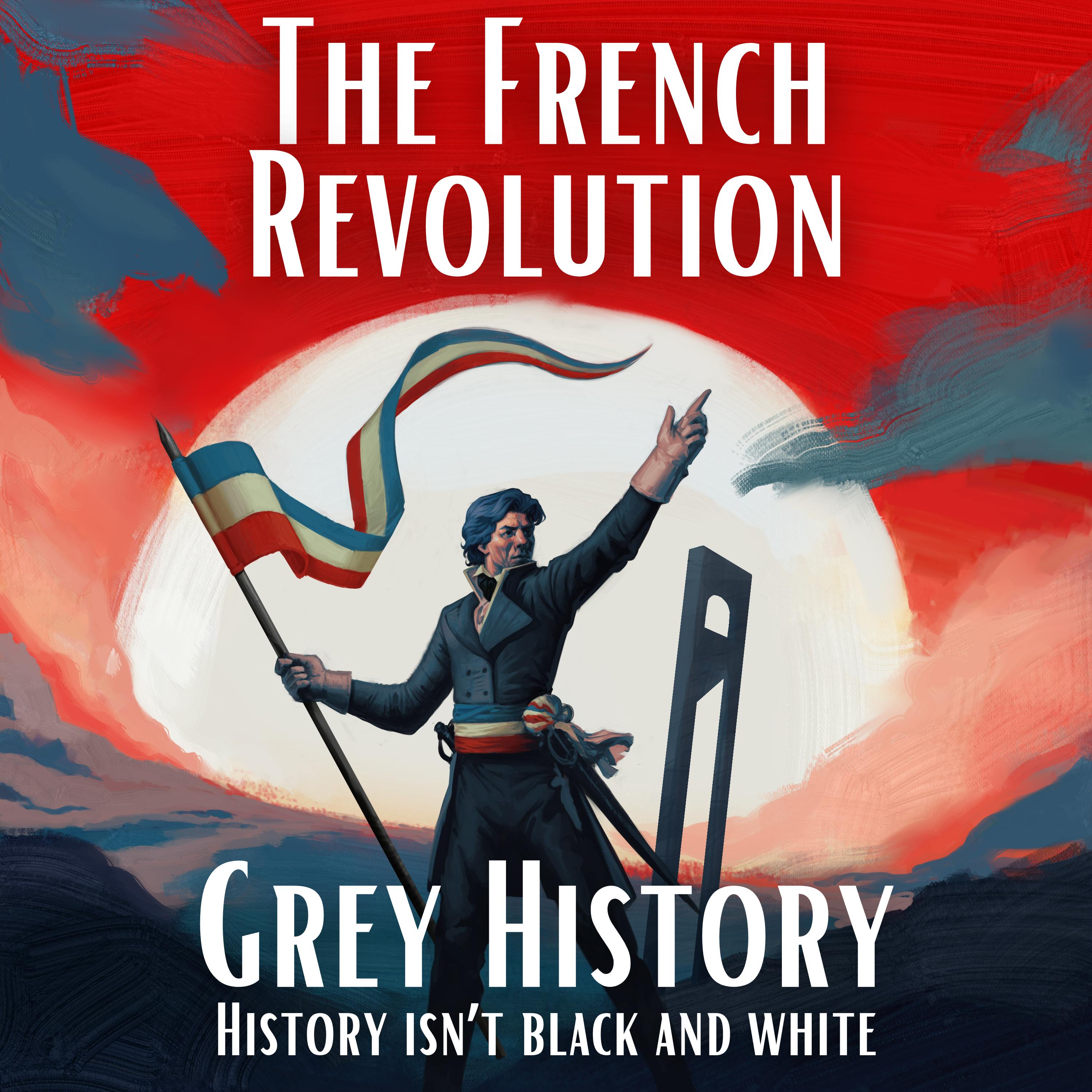
French Revolution & Napoleon (Grey History)
Grey History (William Clark)
The Life and Times of Frederick the Great
Alec Avdakov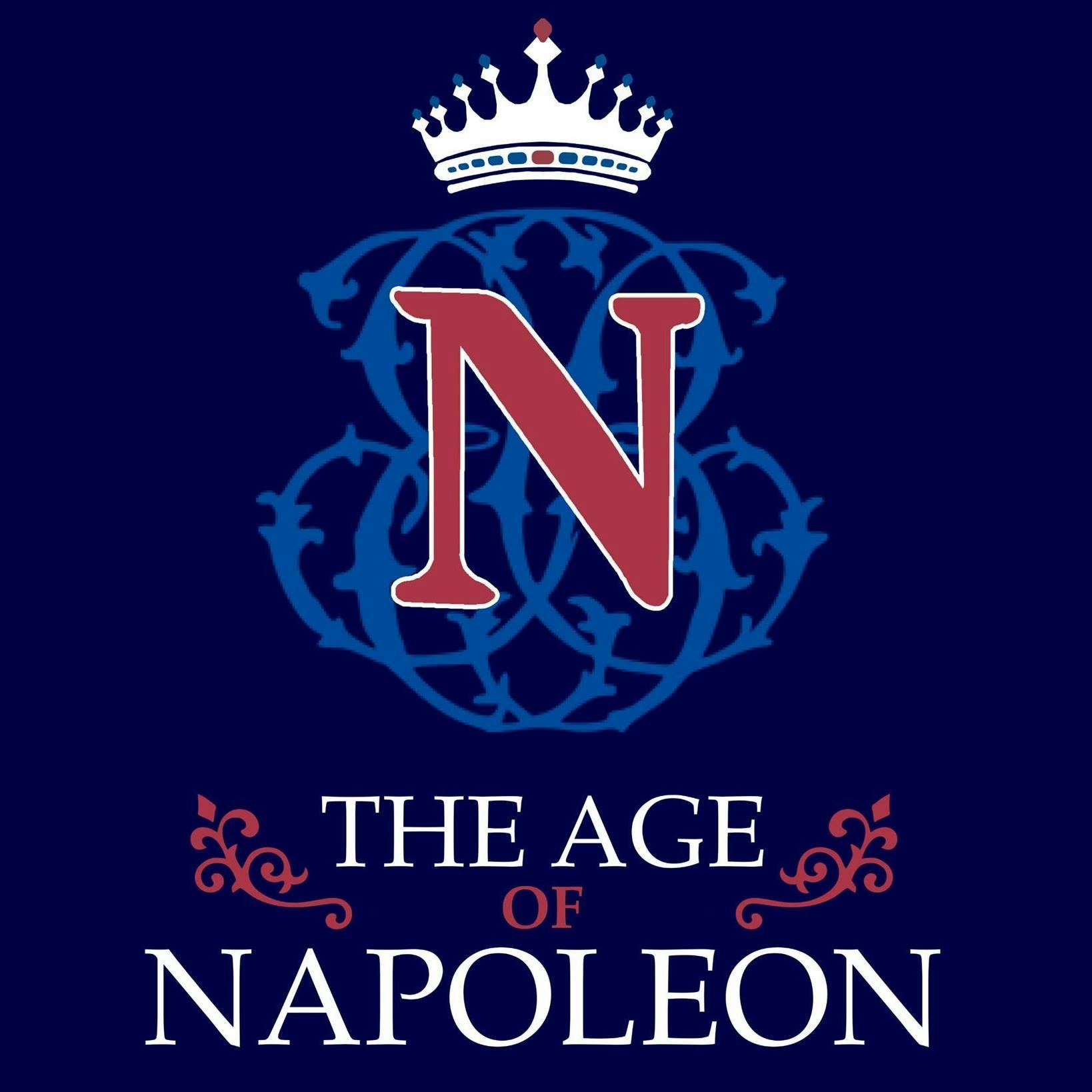
The Age of Napoleon Podcast
Everett Rummage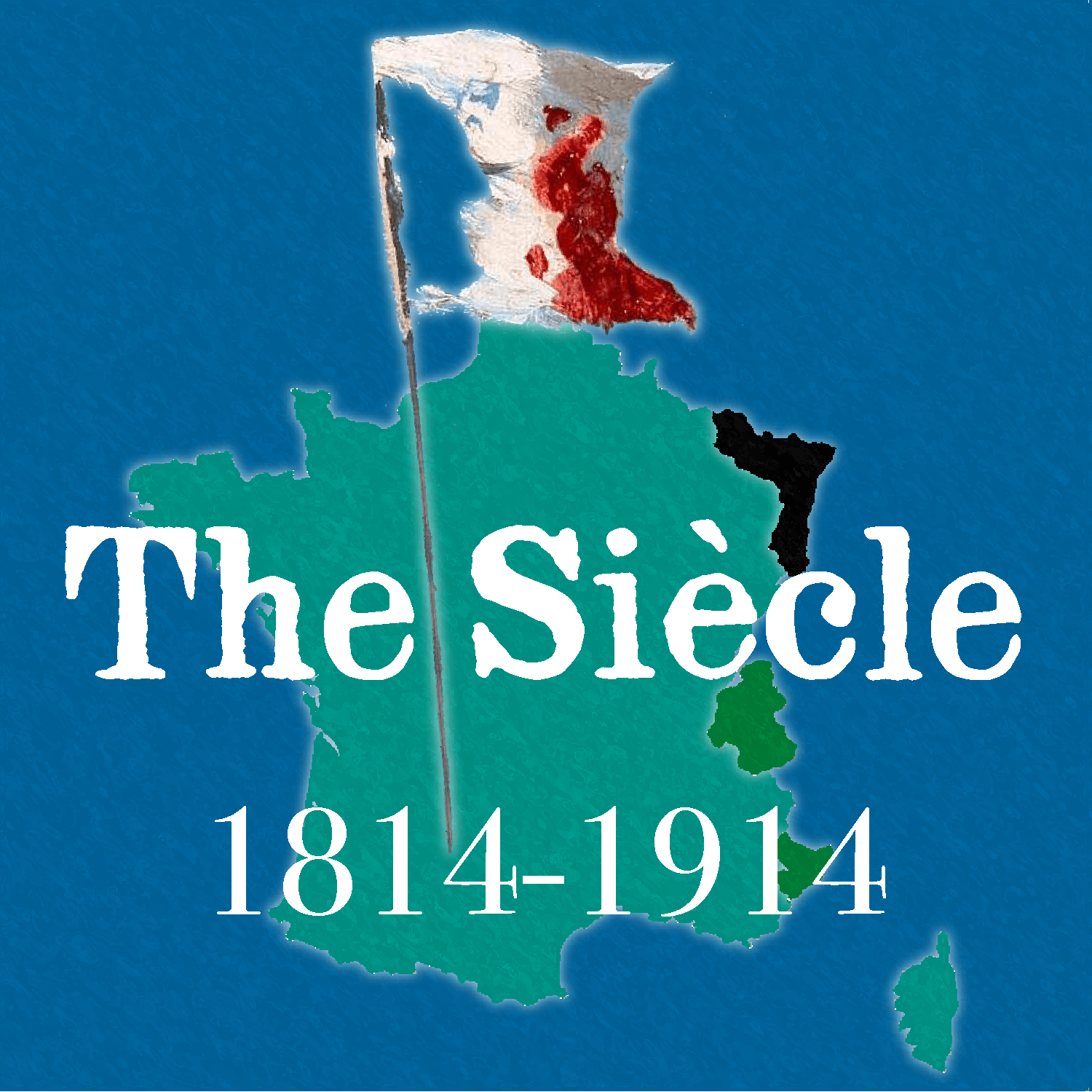
The Siècle History Podcast
Evergreen Podcasts
The Napoleonic Wars Podcast
Zack White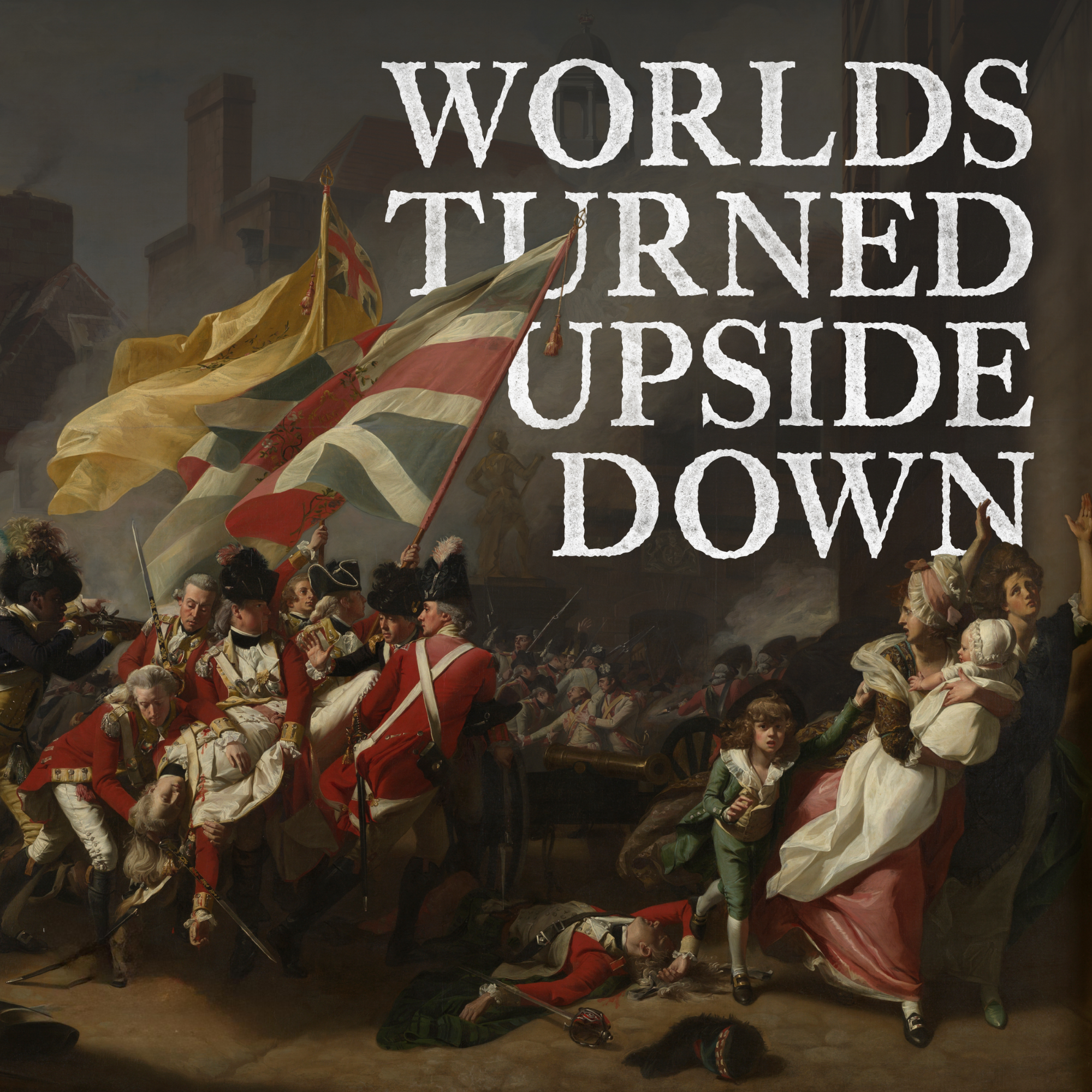
Worlds Turned Upside Down
Roy Rosenzweig Center for History and New Media
Empire-Builders
David Mainayar
Battles of the First World War Podcast
Mike Cunha
New York, Quebec, and The Water Route to the Center of the World
William Matthews
Deep into History
Deep into History
Battle Royale: French Monarchs
Ben Clarke and Eliza Sommers
A History of Japan
Justin Hebert
The French History Podcast
Evergreen Podcasts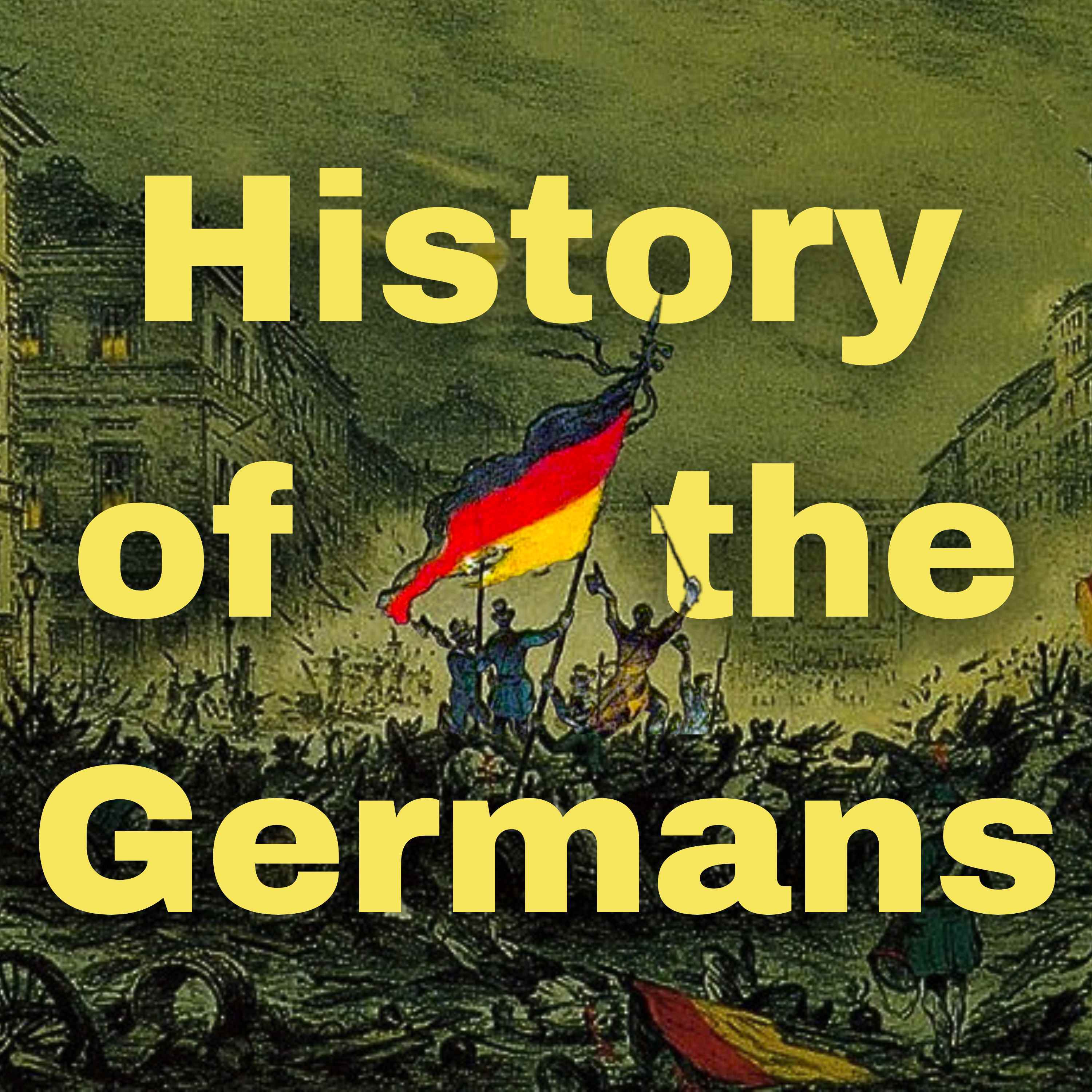
History of the Germans
Dirk Hoffmann-Becking
Half-Arsed History
Riley KnightFrench-Canadian Legacy Podcast
French-Canadian Legacy Podcast
The History of England
David Crowther
Canadian History Ehx
Craig Baird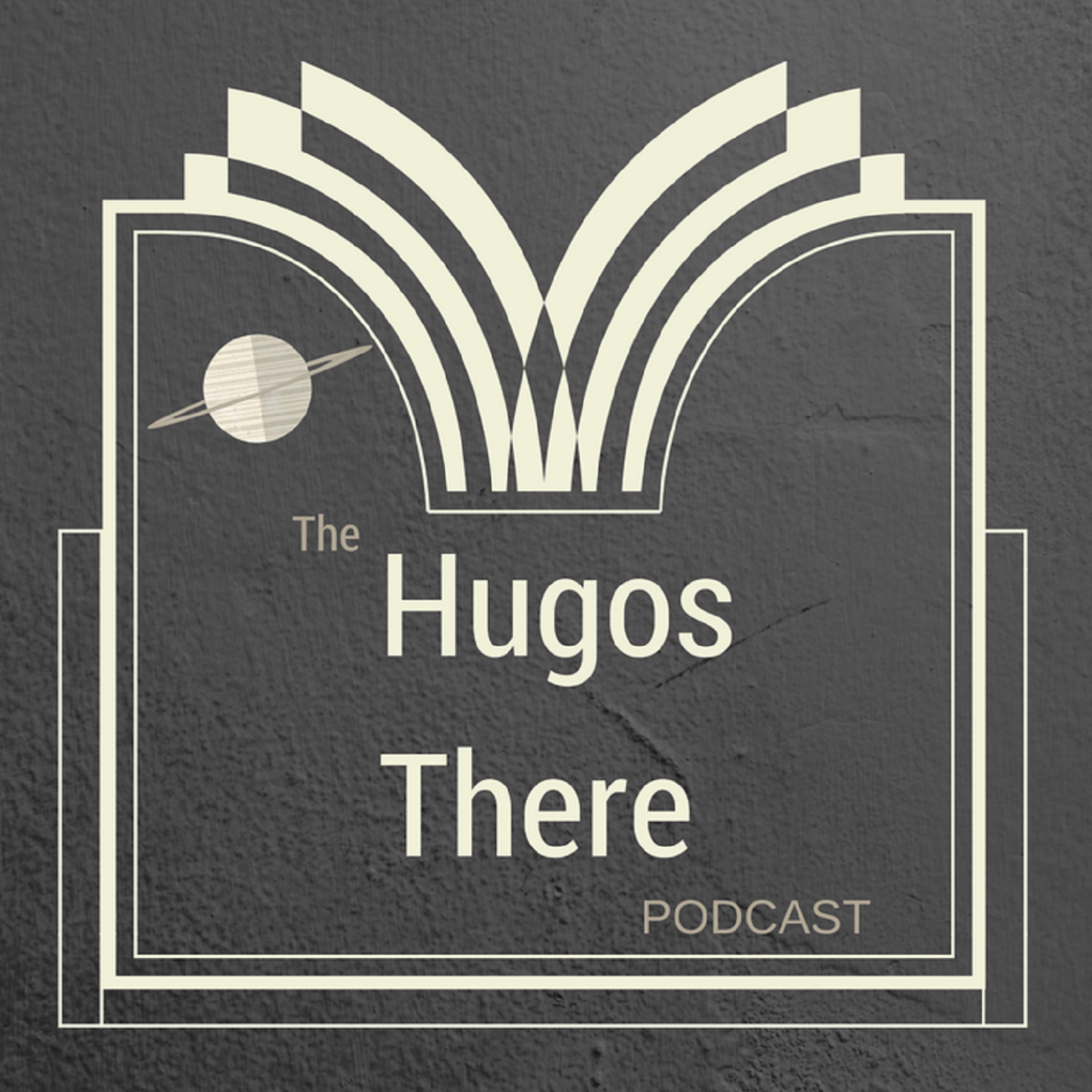
Hugos There Podcast
Hugos There Podcast
Hugo, Girl!
Hugo Girl

